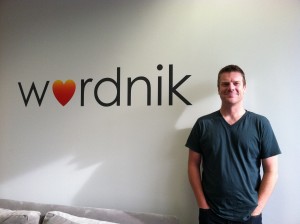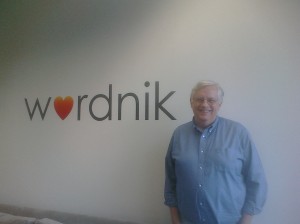Wordnik is participating in the day of protest against the (now-temporarily-shelved) SOPA Act (Stop Online Piracy Act) and the (still active) PIPA Act (Protect IP Act).
What’s SOPA? Here are some example sentences that we think make it clear that this bill is a bad idea:
SOPA – the Stop Online Piracy Act – and a sister bill, PIPA – the Protect IP Act – seek to minimize the dissemination of copyrighted material online by targeting sites that promote and enable the sharing of copyright-protected material, like The Pirate Bay. While this goal may be laudable, entrepreneurs, legal scholars and free speech activists are worried about the consequences of these bills for the architecture of the Internet. Ethan Zuckerman: MIT Media Lab opposes SOPA, PIPA
[T]he bills represent an unprecedented, legally sanctioned assault on the Internet’s critical technical infrastructure. Based upon nothing more than an application by a federal prosecutor alleging that a foreign website is “dedicated to infringing activities,” Protect IP authorizes courts to order all U.S. Internet service providers, domain name registries, domain name registrars, and operators of domain name servers—a category that includes hundreds of thousands of small and medium-sized businesses, colleges, universities, nonprofit organizations, and the like—to take steps to prevent the offending site’s domain name from translating to the correct Internet protocol address. These orders can be issued even when the domains in question are located outside of the United States and registered in top-level domains (e.g., .fr, .de, or .jp) whose operators are themselves located outside the United States; indeed, some of the bills’ remedial provisions are directed solely at such domains. Stanford Law Review: Don’t Break the Internet
At a minimum, this means that [under SOPA] any service that hosts user generated content is going to be under enormous pressure to actively monitor and filter that content. That’s a huge burden, and worse for services that are just getting started – the YouTubes of tomorrow that are generating jobs today. EFF: “SOPA: Hollywood Finally Gets A Chance to Break the Internet”
Now, enter SOPA. § 103 of SOPA allows private parties to require payment processors and advertising services to cut ties with websites that are allegedly “dedicated to the theft of U.S. property.” Note: this is all done outside of the court system, so no judge actually reviews any of these claims before they’re enforced by the payment and ad networks. Public Knowledge: SOPA and Section 1201: A Frightening Combination
The latest move in a decades-long battle with piracy and copyright infringement is a bill called the PROTECT-IP Act that would essentially allow the U.S. government to block access to sites they deemed inappropriate. The bill would criminalize posting all sorts of standard web content — music playing in the background of videos, footage of people dancing, kids playing video games, and posting video of people playing cover songs. A move that would not only stifle free speech and creative expression, but potentially endanger hundreds of user-generated media sites like Vimeo, Tumblr, SoundCloud and more. The Creators Project: Artists Band Together To Fight Censorship And Oppose The PROTECT-IP Act
Laws like SOPA make us sclerotic as a country, where we have all these extra burdens that provide little benefit. In general it makes America less competitive. If SOPA goes through, it could very well force certain innovative companies to go offshore. There are incumbent industries that will always protest every new technology; but any forward-looking country needs to protect its emerging industries. GigaOm: Tim O’Reilly: Why I’m fighting SOPA
So you don’t run a website … how might SOPA and PIPA affect you?
The harm that does to ordinary, non-infringing users is best described via a hypothetical user: Abe. Abe has never even so much as breathed on a company’s copyright but he does many of the things typical of Internet users today. He stores the photos of his children, now three and six years old, online at PickUpShelf* so that he doesn’t have to worry about maintaining backups. He is a teacher and keeps copies of his classes accessible for his students via another service called SunStream that makes streaming audio and video easy. He engages frequently in conversation in several online communities and has developed a hard-won reputation and following on a discussion host called SpeakFree. And, of course, he has a blog called “Abe’s Truths” that is hosted on a site called NewLeaflet. He has never infringed on any copyright and each of the entities charged with enforcing SOPA know that he hasn’t.
And yet, none of that matters. Under SOPA, every single one of the services that Abe uses can be obliterated from his view without him having any remedy. Abe may wake up one morning and not be able to access any of his photos of his children. Neither he, nor his students, would be able to access any of his lectures. His trove of smart online discussions would likewise evaporate and he wouldn’t even be able to complain about it on his blog. And, in every case, he has absolutely no power to try to regain access. That may sound far-fetched but under SOPA, all that needs to happen for this scenario to come true is for the Attorney General to decide that some part of PickUpShelf, SunStream, SpeakFree and NewLeaflet would be copyright infringement in the US. If a court agrees, and with no guarantee of an adversarial proceeding that seems very likely, the entire site is “disappeared” from the US internet. Bricoleur: Overbroad Censorship & Users
You can track this legislation and read the full text here.
At Wordnik, we’re against piracy, but we think that SOPA and PIPA create more problems than they solve. So we’re happy to stand alongside such giants of the Internet as Wikipedia, the Internet Archive, O’Reilly Media, WordPress, Reddit, BoingBoing, and ICanHazCheezburger and add our voices to the chorus of those protesting this ill-thought-out and Internet-wrecking legislation.
Want an easy way to make your opinion heard in Congress? You can send emails via FightForTheFuture.org and AmericanCensorship.org. (AmericanCensorship.org also has HTML code for you to use to add a black “Stop Censorship” banner to your own blog or site.)
If you’re in San Francisco, you can join an in-person protest Wednesday from noon to 2 p.m.; details here. (Ditto New York and Seattle.)
And if you have an Android device, here’s a link to an app that will help you boycott SOPA-supporting companies and organizations.
PS Our word of the day today, spiflicate, is also in protest of SOPA and PIPA. SOPA and PIPA are set to spiflicate (‘stifle, suffocate, kill’) the Internet; but before that happens we hope to spiflicate (‘beat, confound, dismay’) them!


